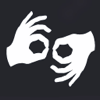BOTOX® is used to treat a wide range of conditions, including movement disorders, focal spasticity, hemifacial spasm and axillary hyperhidrosis.
Key points
- This clinic is MBS billed
- Appointments are available in person
What we do
BOTOX® (botulinum toxin, type A) injections are generally performed under electromyography (EMG) guidance.
Treatment is limited to conditions where there is established evidence of botulinum toxin efficacy. Patients should have an established diagnosis under the care of a specialist before referral to this clinic.
When botulinum toxin injection represents only part of the management of the underlying condition, patients should continue to also be managed by their referring specialist.
Who can use our service
This clinic is suitable for:
- Adults (aged 18 years or over)
- Patients with the Medicare eligible conditions: cervical dystonia, hemifacial spasm, blepharospasm, focal spasticity, axillary hyperhidrosis, laryngeal dystonia
- Patients with some other conditions including focal dystonia, dystonic tremor, gustatory sweating
This clinic is not suitable for:
- Paediatric patients
- Patients with generalised spasticity and most patients with bilateral severe lower limb spasticity. These patients are better managed at their nearest rehabilitation service for further evaluation, with botulinum toxin injections part of a multidisciplinary approach to spasticity management.
- Patients with conditions for which there is no established evidence for botulinum toxin efficacy. With few exceptions, only conditions meeting Medicare eligibility criteria for botulinum toxin injection will be accepted
- Patients with chronic pain syndromes without an underlying movement disorder or focal spasticity
Other referral requirements
Patients should be seen first in a specialist clinic such as movement disorders or general neurology, unless they have undergone botulinum toxin injection elsewhere and are seeking to continue care at the RMH.
Patients who live in metropolitan areas with a closer public outpatient neurology service will generally not be accepted to this clinic. These patients should be referred to a centre of care that is closer to their residing address.
Patients who receive ongoing care for the underlying condition from other services at the RMH will be accepted regardless of residing address.
Referrals
We only accept new referrals from specialists:
- Use the RMH referral form or a template from your own system
- Complete and fax your referral to Specialist Clinics (Outpatients) on (03) 9342 4234
We do not accept email referrals.
What to include in your referral
As outlined by the Department of Health, referral requests should include:
- Patient demographic information
- Referrer demographic information
- Reason for referral
- Presenting problem
- Service(s) requested
- Required referral information specified by statewide or local referral criteria
- Current patient management
- Impact of the problem on the patient
- Name of the consultant and provider number (for Medicare clinics)
- Investigation reports related to the referral
Urgent and after-hours support
Referrals are triaged based on priority. In an emergency, patients can go to the Emergency Department at any time.
For advice, urgent referrals and out of hours support, call The RMH Switchboard on (03) 9342 7000 to page our registrar on call.
Patients should be seen first in a specialist clinic such as movement disorders or general neurology, unless they have undergone botulinum toxin injection elsewhere and are seeking to continue care at the RMH.
Patients who live in metropolitan areas with a closer public outpatient neurology service will generally not be accepted to this clinic. These patients should be referred to a centre of care that is closer to their residing address.
Patients who receive ongoing care for the underlying condition from other services at the RMH will be accepted regardless of residing address.
Statewide referral criteria for clinicians strengthens referrals to specialised services in public hospitals and improves access to non-admitted services. You can browse or search by specialty or medical condition.
HealthPathways Melbourne provides guidance on best practice assessment and management of common medical conditions, including when and where to refer patients.
Parkville Connect is a secure web-based portal providing GPs, specialists and other health professionals with information in the Parkville electronic medical record (EMR).
Need to change or cancel your appointment?
Do one of the following:
- Access Health Hub to change the appointment yourself
- Complete our online form and we'll change it for you
- Call Specialist Clinics (Outpatients) on (03) 9342 7393 and we'll help you over the phone
What to bring
Every time you come
Every time you come in for a test, day procedure, surgery or treatment, you should bring:
- Medicare card
- Health Care card (if you have one)
- Concession card (if you have one)
- Adverse drug alert card (if you have one)
- Medications you are currently taking, including any that you have bought without a prescription
- X-ray films, scans, ultrasounds or any other test results you have which are related to your procedure
- Private health insurance card (if you want to use it)
- Aids (glasses, hearing aid, walking frame)
For a clinic appointment
If you come for a clinic appointment, you should also bring:
- Your appointment letter
- Any special items listed on your letter
- Your appointment book (if relevant)
- TAC or WorkCover claim number
Interpreters and cultural support


We provide qualified, professional interpreters to help you communicate with us at any time during your stay and at your clinic appointments.
- Μάθετε περισότερα γιά διερμηνείς & υποστήριξη κουλτούρας
- Scopri di più sugli interpreti e sul supporto culturale
- Tercümanlar ve kültürel destek hakkında daha fazla bilgi edinmek için
- Tìm hiểu thêm về thông dịch viên và hỗ trợ văn hóa
- 找出更多翻译与文化支持的信息
- لمزيدٍ من المعلومات عن خدمة الترجمة الشفهية والخدمات الثقافية
Level 4 North
300 Grattan St, Parkville, Victoria

